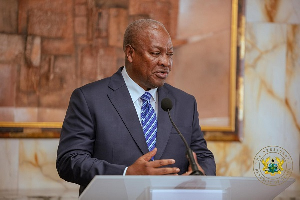Ghana could adequately feed itself and provide markets for other countries if she builds a robust legal and regulatory framework for a Ghana Commodities Exchange (GCX) and Warehouse Receipts System.
Mrs Ruby Sandhu-Rojon, United Nations Resident Co-ordinator of the United Nations Development Programme (UNDP), who made the remarks on Monday in Accra, at the opening session of the GCX Stakeholders Training, expressed confidence that farming would become a vocation of choice and a means of promoting inclusive growth and food security when the Exchange programme was rolled out.
She advised that, Ghana should not lose focus on enhancing the country’s capacity to produce renewable resources in the form of agricultural commodities adding; the move would not only avert an “oil curse” syndrome but also boost agriculture production.
Mrs Sandhu-Rojon said the support to establish GCX complemented other initiatives implemented by the UNDP to promote inclusive growth and reduce the inequity between northern and southern Ghana.
“We look forward to working with the Ministry of Trade and Industry (MOTI) and other partners to ensure the GCX is established and operational by the end of 2012,” she said, adding that “we eagerly await the start of the first trading on the floor of the Commodities Exchange to enable the Ghanaian farmer to obtain fair and predictable pricing for their produce.”
The purpose of establishing the GCX is to create orderly, transparent and efficient marketing system for Ghana’s key agricultural commodities to promote agricultural investment, enhance productivity, encourage market access and fair returns for smallholder farmers, and to facilitate the formalisation of informal agricultural trading.
The two-week training, jointly organised by MOTI and UNDP, is to assist the participants deliberate on effective ways of implementing the concept and to learn from success stories, especially from the Ethiopian Commodity Exchange (ECX) system.
Dr Eleni Gabre-Madhin, Chief Executive Officer of ECX, described the exchange concept as transformational and urged the participants to formulate an innovative and unique model for Ghana.
The ECX, which began trading operations in April 2008, is said to have revolutionized Ethiopia’s tradition-bound agriculture, through the creation of a new marketplace that served all market actors, from farmers to traders to processors to exporters and to consumers.
It created opportunities for unparalleled growth in the commodity sector and linked industries, such as transport and logistics, banking and financial services.
According to a report, the ECX concept assured all commodity market players of the security they needed in the market through the provision of a secure and reliable End-to-End system for handling, grading, storing commodities, matching offers and bids for commodity transactions, risk-free payment and goods delivery system to settle transactions as well as a far and efficient service for all.
It is said to have created trust and transparency through aggressive market data dissemination to all market actors, through clearly defined rules of trading, warehousing, payments and delivery and business conduct, and through an internal dispute settlement mechanism.
Before ECX was established, agricultural markets in Ethiopia were said to have been characterized by high costs and high risks of transacting, forcing much of Ethiopia into global isolation.
With only one third of output reaching the market, commodity buyers and sellers tended to trade only with those they knew, to avoid the risk of being cheated or default with trade done on the basis of visual inspection because there was no assurance of product quality or quantity.
The move resulted in market costs inching up leading to high consumer prices.
Small-scale farmers, who produced 95 percent of Ethiopia’s output, came to market with little information and were at the mercy of merchants in the nearest and only market they knew, unable to negotiate better prices or reduce their market risk.**
Business News of Monday, 26 March 2012
Source: GNA


![Social activist, Ralph [L] and MP for Nhyiaeso, Dr. Stephen Amoah Social activist, Ralph [L] and MP for Nhyiaeso, Dr. Stephen Amoah](https://cdn.ghanaweb.com/imagelib/pics/385/38528813.295.jpg)









